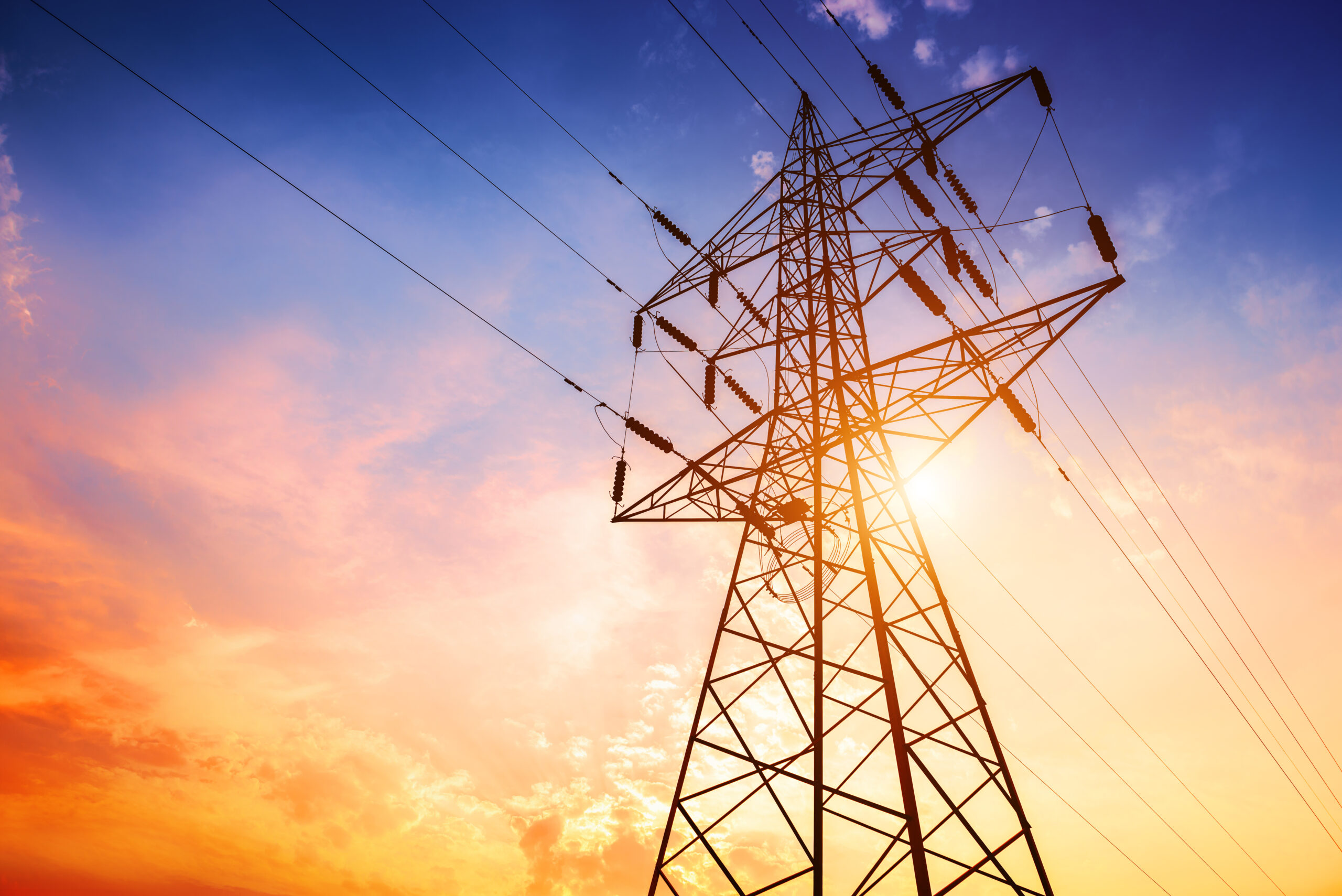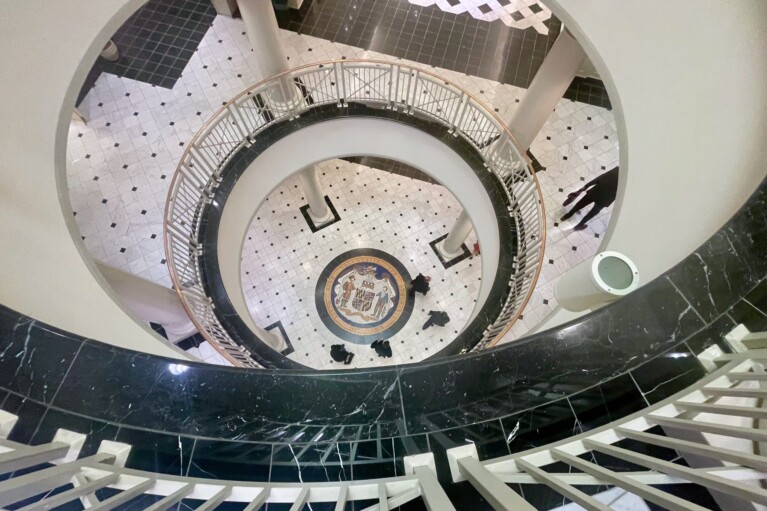First in the nation bill seeks to shed light on utility deliberations and ‘shadow government’

The arcana of public utility law can be impossible to grasp — even for state lawmakers who must set policy for the regulatory agencies that oversee Maryland’s monopoly electric utilities.
But as oversight of utilities becomes a critical component of the state’s ability to combat climate change — not to mention that they have a profound impact on the pocketbooks of everyday Marylanders — policy debates about electricity generation, transmission and consumption are becoming more commonplace and important in Annapolis.
It helps explain why Pepco, the electric utility for Maryland’s Washington, D.C., suburbs, has 24 registered State House lobbyists and why BG&E, which covers the Baltimore region, has 20 registered lobbyists. Their stables include influential former lawmakers and some of the best-compensated government relations firms in Annapolis. Both utilities are owned by Exelon, the Chicago-based energy giant, which has a couple of high-powered lobbyists of its own.
Last week, the House, quietly and somewhat unexpectedly, passed a bill that would require Maryland’s electric utilities to be more transparent about some of their internal deliberations and their participation with PJM, the powerful regional electric grid operator.
It may not sound like a big deal. But Albert Pollard, a former Virginia state legislator who is advising an Illinois consumers group on electric grid matters, compares the impact of the legislation to “Harry Potter trying to unlock the sorcerer’s sword.”
Maryland utilities opposed the measure during a hearing before the House Economic Matters committee earlier this month, and are expected to do so again with the bill moving to a hearing next Tuesday afternoon in the Senate Committee on Education, Energy and the Environment. The question is, how aggressively will their well-connected lobbyists work to kill the bill? And what will the posture of the Senate committee and the full Senate ultimately be?
“No one has talked to me about that bill,” the Senate committee chair, Brian Feldman (D-Montgomery), said in an interview Wednesday. “It’s not even on my radar at this point.”
To be sure, there are more weighty and potentially consequential bills about energy and climate on the General Assembly’s docket this session. But House Bill 1186, sponsored by Del. Lorig Charkoudian (D-Montgomery), could have wide-ranging implications — and national clean energy advocates and consumer groups are watching.
If the bill passes, Maryland would become the first state in the U.S. requiring electric utilities to publicly report the votes their representatives take on so-called lower-tier PJM committees.
If that sounds bureaucratic and baffling, it’s only because it is. But make no mistake, “the little bill that nobody understands could have a big impact,” Pollard said in an interview.
PJM is the company that operates the electric grid in Maryland, the District of Columbia and 12 others states, serving 63 million customers. Over 1,100 entities, including utilities, transmission companies, energy suppliers, financial firms, industrial companies, regulators and consumer advocates, pay $5,000 a year to become members of PJM. About 500 are eligible to vote on the grid operator’s board.
“It operates in relative obscurity,” said Pollard, who is working with the Illinois Citizens Utility Board. “But their actions impact everything, from the rates we pay for electricity to the speed of the energy transition.”
Big decisions of the PJM board, which set the grid operator’s policies and priorities, are a matter of public record. But PJM also has several committees that meet regularly, and the deliberations and votes committee members take are not made public unless the issues wind up being debated by the full board.
This creates a situation, Charkoudian said, “that is somewhat confounding and challenging.” Policies issued by PJM, which Charkoudian describes as “almost like a shadow government that’s not accountable to anybody,” can, at times, run counter to climate standards or consumer protections laid out in Maryland law.
“They are essentially in a position to override a lot of our policies and policy goals,” she said. “As we ponder in Maryland trying to build up the solar [energy use], trying to build up the wind, trying to better address climate change, the PJM rules undermine our policies, essentially slowing down our transition to renewables and costing our ratepayers more money.”
Charkoudian’s bill would require Maryland’s utilities to report annually on the votes they took during these PJM committee sessions. No other state has such a requirement.
“It’s a small attempt to try to get at a very complicated decision-making process,” she said. It seeks more accountability from the utilities that enjoy monopoly status on energy distribution in Maryland.
Pollard offered an example: Last year, he said, PJM proposed a process that would have provided for a price freeze if electricity costs spiked too high. But the proposal was defeated in a committee — and no one will ever know how committee members, including Maryland utilities, voted.
Bill ‘would subvert the collaborative process, stifle innovation’
The public hearing on the PJM legislation in the House Economic Matters Committee earlier this month lasted all of 10 minutes. Charkoudian, who sits on the panel, presented the bill to her colleagues. William Fields, from the Maryland Office of People’s Counsel, which represents consumers’ interests on utility matters, testified in favor of the bill. So did Pollard, remotely. There was no other oral testimony.
The Maryland Energy Administration, the Sierra Club, and the Maryland Legislative Coalition, a progressive group, submitted written testimony in favor of the bill. And the utilities submitted written testimony in opposition.
“Requiring a utility to submit information to the Maryland Public Service Commission on every vote taken at PJM’s lower-level committee meetings would subvert the collaborative process, stifle innovation and be a significant administrative burden and cost for little to no incremental benefit to the Maryland Public Service Commission in order to exercise its state regulatory jurisdiction and authority,” Pepco and Delmarva Power, another Exelon company, wrote in a joint statement.
The utilities went on to suggest that “companies would be unwilling to offer innovative or nascent proposals for discussion for fear of retribution on a vote taken and recorded at that level. In addition, providing information as to whether a particular proposal is within the public interest could have the same stifling effect. We believe that companies should be able ideate freely at that level and the transparency provided at the member level is sufficient.”
In its written testimony, BG&E articulated many of the same themes and added that the bill “overreaches and is not an efficient use of resources because it seeks voting records and information on transmission-related activities, all of which are regulated at the federal government level and not by the State of Maryland.”
When the Economic Matters Committee met last week to consider Charkoudian’s bill, the lawmaker told her colleagues the intent of the legislation isn’t to suppress frank conversations at PJM but rather to track votes that the utilities make on committees. The bill would not require PJM to release meeting minutes, she said, because Maryland lawmakers have no authority over the grid operator.
That argument resonated with Del. C.T. Wilson (D-Charles), the committee chair.
“How is that at risk?” he said of the ability of the utilities’ representatives to speak freely at PJM committee meetings. “If I’m operating in the light, I can’t, but if it’s not, I’m comfortable?”
Wilson and Del. Brian Crosby (D-St. Mary’s), the committee vice chair and chair of the panel’s Public Utilities Subcommittee, echoed Charkoudian’s assertion that the bill is mainly about transparency. They also both noted that the bill’s opponents did not turn up at the hearing.
“Not one utility sat at the table and allowed us to ask them questions,” Crosby said. “I think that’s worth something.”
The committee voted along party lines, 14-7, to send the PJM bill to the House floor. Two Democrats were excused from the voting session and Wilson, as the chair, generally does not vote.
On the House floor, there was no debate when the measure came up for preliminary discussion. There was also no debate when it was time for a final vote on Saturday; it passed along party lines, 100-35.
Because there was no Senate version of the legislation, Charkoudian’s bill heads to the Senate committee with jurisdiction over utility matters without members having had an opportunity to consider the issue at length beforehand. Utilities and their lobbying teams are used to often holding sway in legislative committees in Annapolis, but this may be a rare exception.
“When you look at the [written] responses filed [in the House],” Pollard observed, “they were anti-transparency gold.”




 Creative Commons Attribution
Creative Commons Attribution